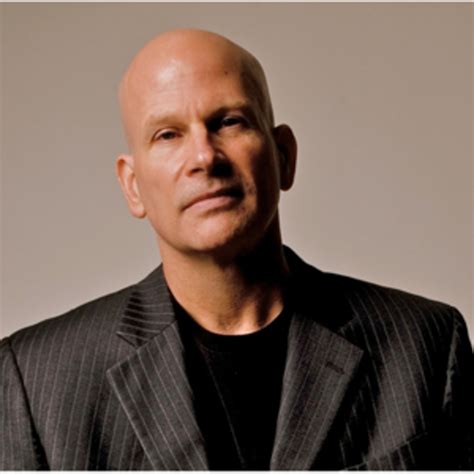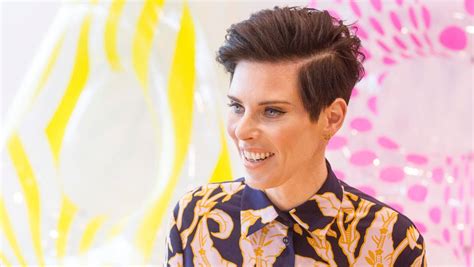A Quote by Jennifer McMahon
One exercise I always do when I'm getting to know a character is ask her to tell me her secrets. Sit down with a pen and paper, and start with, 'I never told anybody...' and go from there, writing in the voice of your character.
Related Quotes
Developing a character with genuine depth requires a focus on not just desire but how the character deals with frustration of her desires, as well as her vulnerabilities, her secrets, and especially her contradictions. This development needs to be forged in scenes, the better to employ your intuition rather than your intellect.
I cannot find any patience for those people who believe that you start writing when you sit down at your desk and pick up your pen and finish writing when you put down your pen again; a writer is always writing, seeing everything through a thin mist of words, fitting swift little descriptions to everything he sees, always noticing. Just as I believe that a painter cannot sit down to his morning coffee without noticing what color it is, so a writer cannot see an odd little gesture without putting a verbal description to it, and ought never to let a moment go by undescribed.
Yes, I am one of those people who feels that most of my work is adaptation of one sort or another. For me, it's a way to jump-start the engine. For example, some people use the technique of basing a character on a friend. They start writing with his or her voice, then at a certain point, the character takes off on his or her own. It probably no longer resembles the model, but it helped the author to get going. I find that's true of form, too. For every play I've written, I know what play I was trying to imitate. That helps me get going.
I only have have one question, scraping the inside of me. Answer it, and I will stumble back into her shadow, shut my mouth, never ask again. I've tried to ignore it, but it won't go away. It haunts my dreams, chases me through every single day, and I don't have the strength to turn around, face it down. So please tell me and I swear I'll never ask again. It's in your power to make it go away, and all you have to do is tell me why you love her more.
Chronicler picked up his pen, but before he could dip it, Kvothe held up a hand. "Let me say one thing before I start. I've told stories in the past, painted pictures with words, told hard lies and harder truths. Once, I sang colors to a blind man. Seven hours I played, but at the end he said he saw them, green and red and gold. That, I think, was easier than this. Trying to make you understand her with nothing more than words. You have never seen her, never heard her voice. You cannot know.
I think I'll go over and introduce myself to that little red-haired girl. I think I'll introduce myself, and then ask her to come over and sit next to me. I think I'll ask her to sit next to me here, and then I think I'll tell her how much I've always admired her... I think I'll flap my arms, and fly to the moon.
I mostly want to remind her of the recipes of healing, and give her my own made-on-the spot remedy for the easing of her pain. I tell her, “Get a pen. Stop crying so you can write this down and start working on it tonight.” My remedy is long. But the last item on the list says: “When you wake up and find yourself living someplace where there is nobody you love and trust, no community, it is time to leave town – to pack up and go (you can even go tonight). And where you need to go is any place where there are arms that can hold you, that will not let you go.
How far would you go for someone you love ? Well, when my grandkids ask me how I pledged my love to their grandma, I'll say, I told her I would die for her, after I found out I didn't have an incurable disease. Then, I ran away while grandma was getting her ass kicked by a pregnant woman that grandpa slept with. You never know when you're making a memory.
When you are writing, you have to love all your characters. If you're writing something from a minor character's point of view, you really need to stop and say the purpose of this character isn't to be somebody's sidekick or to come in and put the horse in the stable. The purpose of this character is you're getting a little window into that character's life and that character's day. You have to write them as if they're not a minor character, because they do have their own things going on.
If I tell you my character has grey hair, you will not see her. If I tell you she has a tiny scar at the upper left corner of her lip from which protrudes one grey whisker—you will make up the rest of her face with absolute clarity. If I tell you my character is waiting in a car, you won’t be ‘caught,’ but if I tell you he pushes his fingers down in the crack of the car seat where the ancient leather has pulled away from the seat frame, and pulls up a small coin purse with a faded note in it—you will be mine.
What's weird is when you meet a girl who is 23 and you are talking to her, even her voice is high-pitched, she's young. You ask her how old she is, she says, 'Twenty-three, how old are you?' and when I tell her I'm 41 it's like I've just told her I have cancer. It's, 'Oh my God, how long have you had that?'






































